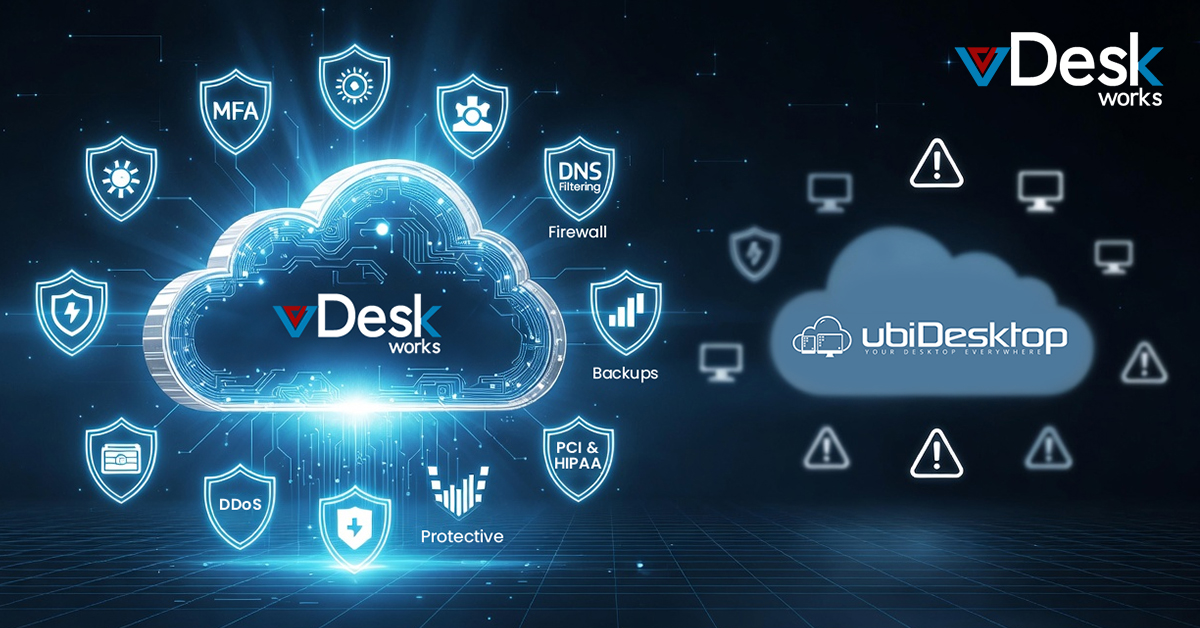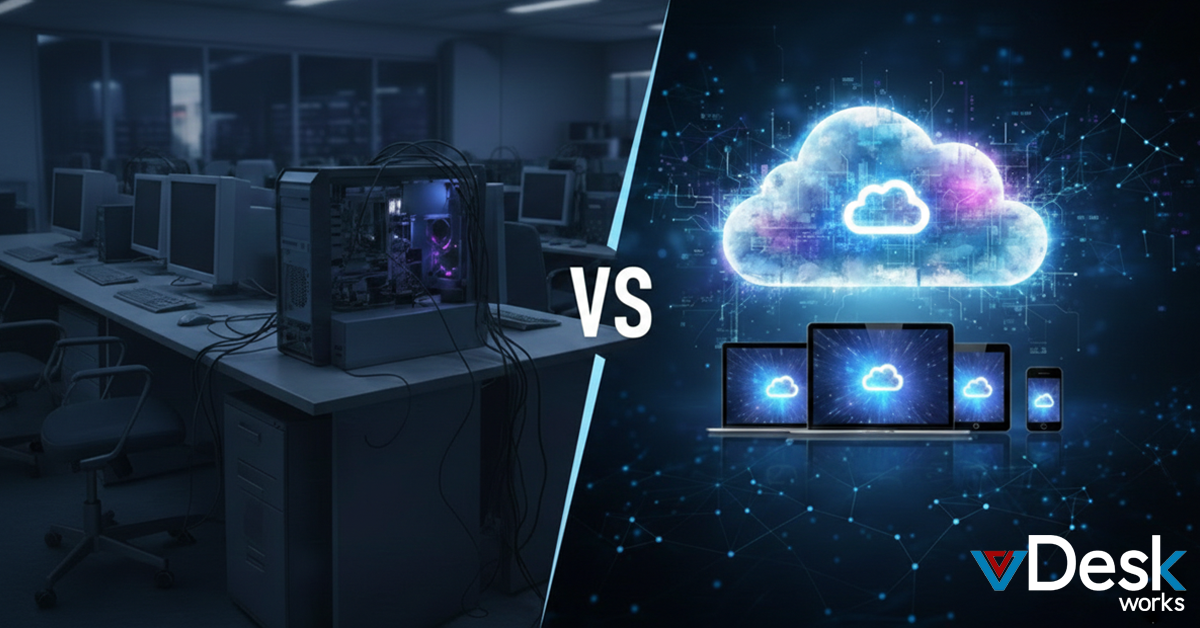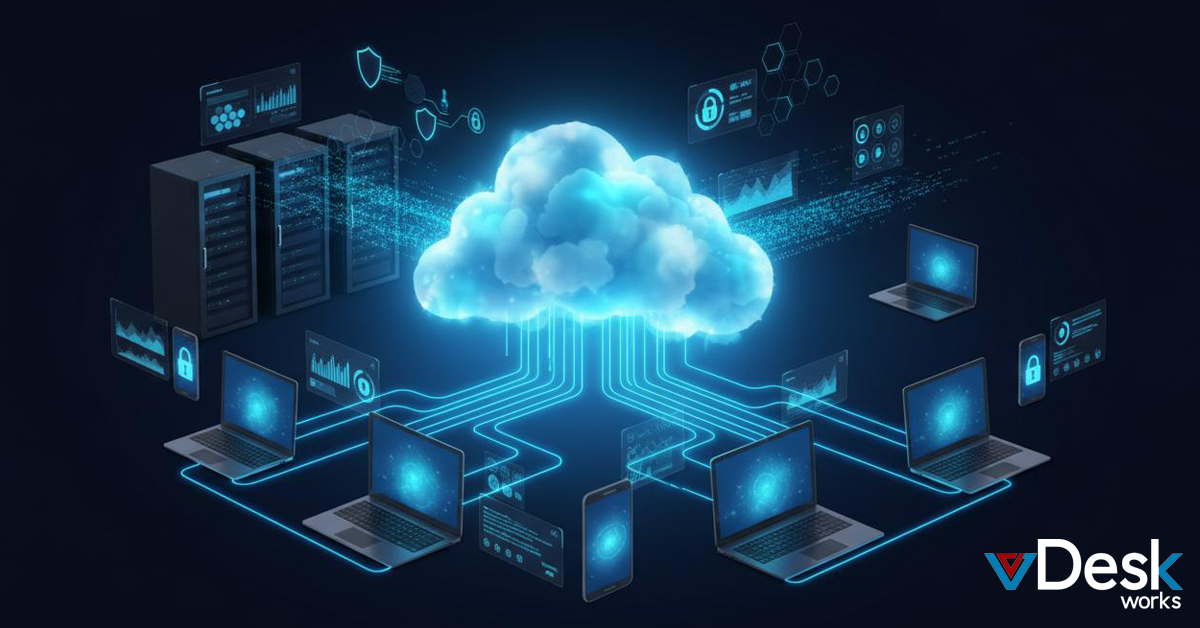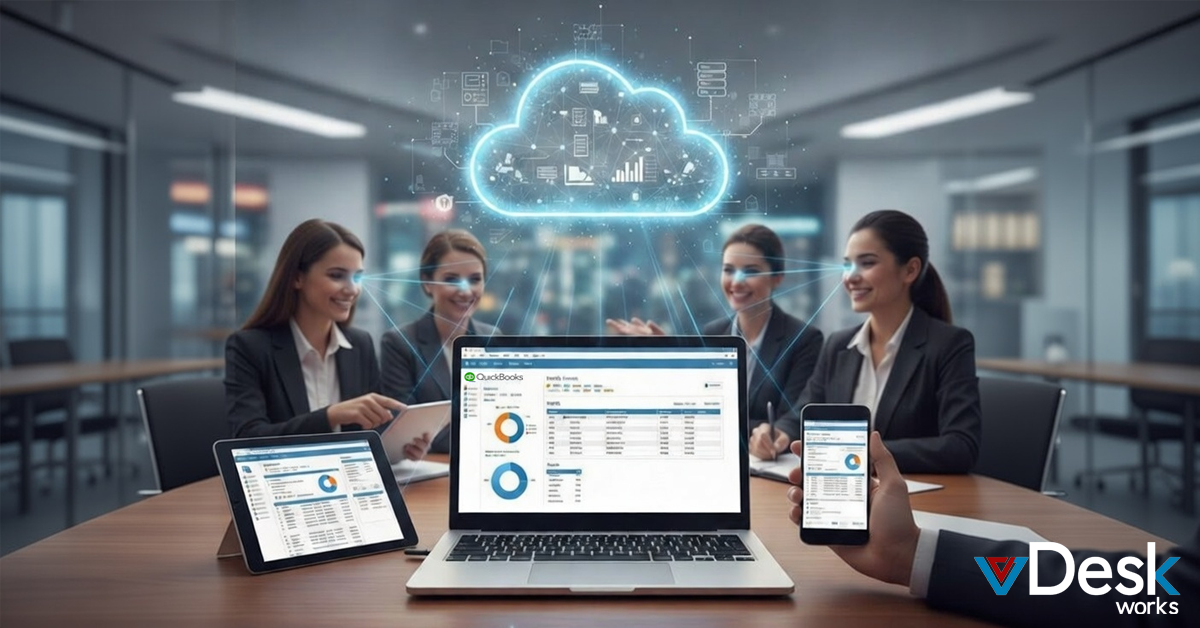DaaS (Desktop as a Service) has finally matured enough to meet the original promises of VDI's enhanced productivity and optimized management of IT infrastructure, companies have now actively implemented virtual desktops. At the same time, cloud infrastructure is inflaming, permitting companies to capitalize further on the same benefits for easy access, reducing the in-house management, minimizing IT resources with overall improved efficiency. Due to which this is the right time when businesses can start implementing high performing DaaS via a cloud solution provider.
Companies are looking into the option of outsourcing their DaaS solutions, and there are a few key points to keep in mind so as to guarantee an enjoyable – and fortunate– experience. Keep the following high-level components in your mind while doing initial research.
DaaS SupportOne of the key benefits of a "Desktop As A Service" solution is that your IT operations Department doesn't need to build or sustain a comparable solution in-house – that's what you're outsourcing! To ensure you can get the full benefits of this type of offering, pay careful attention to the kind of support a DaaS provider offers.
Since DaaS is a somewhat new industry, the solution has still not been strictly defined, and some companies that claim to be DaaS providers offer more of an infrastructure or platform solution. If you genuinely want to outsource your virtual desktops, choose a DaaS provider that provides initial setup and post-setup support as part of their fully-managed services (not as an added line item or self-serve help center).
Supporting Solutions for End usersMost cloud solutions are designed to make end-user computing (EUC) simpler, flexible, and easier to manage – application publishing, storage on the cloud, file share, desktop hosting, etc. Since most of these solutions are complementary, some DaaS providers have more solutions that can be easily added into your contract, reducing the number of DaaS providers you need to evaluate, negotiate with, pay and manage.
If your company is putting increasing emphasis on DaaS solutions (and many are), consider a single provider who can satisfy multiple needs. The fewer vendors you will need to manage, smoother the process will be for you.
Backup & Disaster Recovery OptionsWhile End User Computing solutions like storage over the cloud and sharing files are complementary, a DaaS solution provider must-have disaster recovery and data backup plans. We all know anything can happen to a business if it can't access its sensitive data (that's why ransomware attacks are so active). If you lose your data entirely, the consequences would be very high for your business.
Either you go for an on-premise or cloud-based solution (Desktop As a Service can accept both), working with a DaaS provider that also offers dependable data recovery and different backup solutions will provide you and your company a peace of mind and take another thing off of your busy schedule.
Flexible to Integrate & CompatibleWhile Desktop As a Service technology has matured, to cope with the new demands of the everyday desktop user. The programs they run now are more robust and sophisticated – and they absolutely can't go without integration and compatibility. If your use cases call for GPU-intensive applications, custom application hosting, video chatting, or softphone integration, be sure to particularly ask about a DaaS provider's capability to maintain these characteristics and ask to see it for yourself. The last thing you need is finding out, that you have to switch hardware (like headsets) or applications to make the new desktop initiative work.

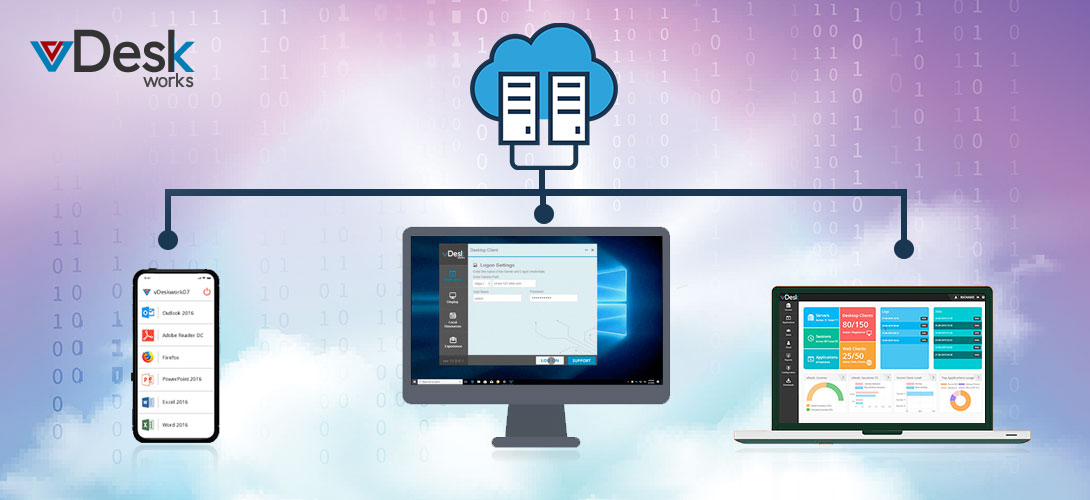
 Jerry Clark
Jerry Clark



